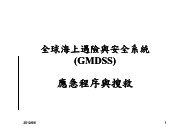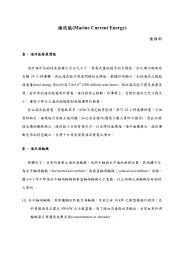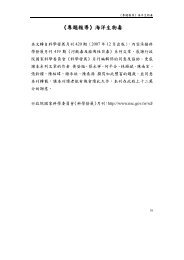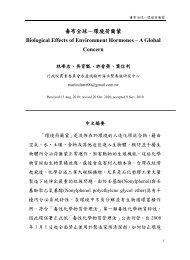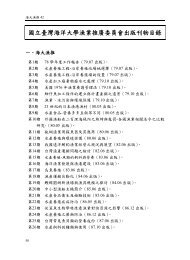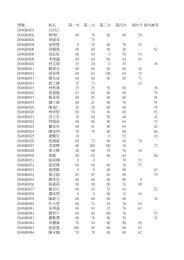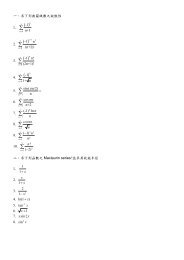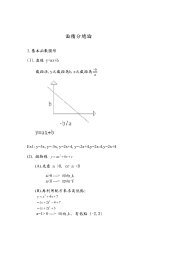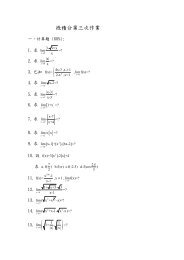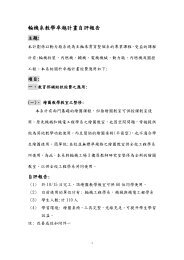Babel, a multilingual package for use with LATEX's ... - linsrv.net
Babel, a multilingual package for use with LATEX's ... - linsrv.net
Babel, a multilingual package for use with LATEX's ... - linsrv.net
Create successful ePaper yourself
Turn your PDF publications into a flip-book with our unique Google optimized e-Paper software.
336 \let\bbl@opt@shorthands\@nnil<br />
337 \fi<br />
338 \ifx\<strong>Babel</strong>Modifiers\@undefined\let\<strong>Babel</strong>Modifiers\relax\fi<br />
339 \ifx\bbl@afterlang\@undefined\let\bbl@afterlang\relax\fi<br />
340 \providecommand\After<strong>Babel</strong>Language[2]{}<br />
341 \def\bbl@csarg#1#2{\expandafter#1\csname bbl@#2\endcsname}%<br />
342 \chardef\bbl@engine=%<br />
343 \ifx\directlua\@undefined<br />
344 \ifx\XeTeXinputencoding\@undefined<br />
345 \z@<br />
346 \else<br />
347 \tw@<br />
348 \fi<br />
349 \else<br />
350 \@ne<br />
351 \fi<br />
\bbl@afterelse<br />
\bbl@afterfi<br />
Beca<strong>use</strong> the code that is <strong>use</strong>d in the handling of active characters may need to<br />
look ahead, we take extra care to ‘throw’ it over the \else and \fi parts of an<br />
\if-statement 22 . These macros will break if another \if...\fi statement appears<br />
in one of the arguments and it is not enclosed in braces.<br />
352 \long\def\bbl@afterelse#1\else#2\fi{\fi#1}<br />
353 \long\def\bbl@afterfi#1\fi{\fi#1}<br />
The macro \initiate@active@char takes all the necessary actions to make its<br />
argument a shorthand character. The real work is per<strong>for</strong>med once <strong>for</strong> each<br />
character.<br />
354 \def\bbl@<strong>with</strong>active#1#2{%<br />
355 \begingroup<br />
356 \lccode‘~=‘#2\relax<br />
357 \lowercase{\endgroup#1~}}<br />
\bbl@redefine<br />
\bbl@redefine@long<br />
To redefine a command, we save the old meaning of the macro. Then we redefine<br />
it to call the original macro <strong>with</strong> the ‘sanitized’ argument. The reason why we do it<br />
this way is that we don’t want to redefine the L A T E X macros completely in case<br />
their definitions change (they have changed in the past).<br />
Beca<strong>use</strong> we need to redefine a number of commands we define the command<br />
\bbl@redefine which takes care of this. It creates a new control sequence,<br />
\org@...<br />
358 \def\bbl@redefine#1{%<br />
359 \edef\bbl@tempa{\expandafter\@gobble\string#1}%<br />
360 \expandafter\let\csname org@\bbl@tempa\endcsname#1%<br />
361 \expandafter\def\csname\bbl@tempa\endcsname}<br />
This command should only be <strong>use</strong>d in the preamble of the document.<br />
362 \@onlypreamble\bbl@redefine<br />
This version of \babel@redefine can be <strong>use</strong>d to redefine \long commands such as<br />
\ifthenelse.<br />
363 \def\bbl@redefine@long#1{%<br />
364 \edef\bbl@tempa{\expandafter\@gobble\string#1}%<br />
365 \expandafter\let\csname org@\bbl@tempa\endcsname#1%<br />
366 \expandafter\long\expandafter\def\csname\bbl@tempa\endcsname}<br />
367 \@onlypreamble\bbl@redefine@long<br />
22 This code is based on code presented in TUGboat vol. 12, no2, June 1991 in “An expansion Power<br />
Lemma” by Sonja Maus.<br />
41



